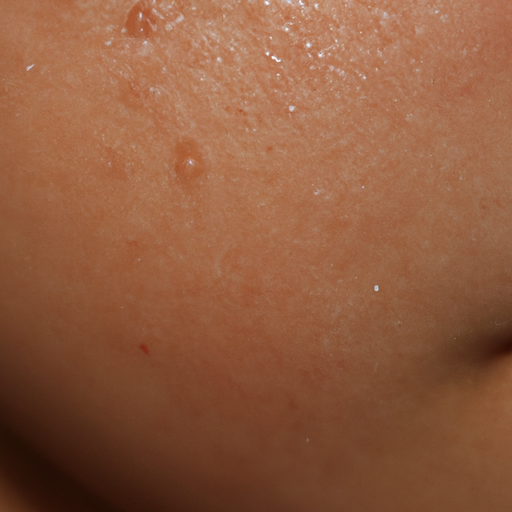As a dermatologist, I have encountered countless patients who struggle with oily skin. This skin type can lead to a host of issues, including acne, enlarged pores, and a shiny complexion. However, it is possible to manage oily skin and unveil a radiant, healthy glow. Here are eight proven strategies to banish oily skin for good.
1. Regular Cleansing: The first step in combating oily skin is regular cleansing. Use a gentle, oil-free cleanser twice daily to remove excess oil and dirt from your skin. Avoid harsh soaps that can strip your skin of its natural oils, leading your sebaceous glands to produce even more oil.
2. Exfoliation: Exfoliating once or twice a week helps remove dead skin cells that can clog pores and increase oil production. Choose a mild exfoliant with salicylic acid or alpha hydroxy acids, which can penetrate the pores and help clear out excess oil.
3. Use Oil-Free and Non-Comedogenic Products: Non-comedogenic products are specifically designed not to clog pores, which is crucial for people with oily skin. Also, opt for oil-free moisturizers and sunscreens to prevent adding extra oil to your skin.
4. Hydrate: While it may seem counterintuitive to hydrate oily skin, it’s an essential step in managing oil production. Dehydrated skin can trigger the sebaceous glands to produce more oil to compensate for the lack of moisture. Choose a lightweight, water-based moisturizer that will hydrate your skin without making it feel greasy.
5. Balanced Diet: Your diet plays a significant role in your skin’s health. Consuming too many oily or processed foods can exacerbate oily skin. Incorporate more fruits, vegetables, lean proteins, and whole grains into your diet for healthier skin.
6. Stay Hydrated: Drinking plenty of water helps maintain the balance of oil and water on the skin’s surface. It also helps in detoxification, which can lead to clearer, less oily skin.
7. Use Blotting Papers: Blotting papers are a quick and convenient way to absorb excess oil from your skin throughout the day. They won’t treat the root cause of oily skin, but they can help manage the shine and give your skin a more matte appearance.
8. Consult a Dermatologist: If you’ve tried numerous over-the-counter products and home remedies without success, it may be time to consult a dermatologist. Prescription medications, such as retinoids or oral contraceptives, can help regulate oil production. In-office treatments, like chemical peels or laser therapy, can also be effective in managing oily skin.
Remember, everyone’s skin is unique, and what works for one person may not work for another. It may take some trial and error to find the right combination of products and lifestyle changes that work for you. However, with patience and consistency, it’s entirely possible to manage oily skin and reveal a radiant, healthy complexion.
In conclusion, dealing with oily skin can be challenging, but it’s not impossible. By following these eight strategies – regular cleansing, exfoliation, using oil-free and non-comedogenic products, hydrating, maintaining a balanced diet, staying hydrated, using blotting papers, and consulting a dermatologist – you can effectively manage your oily skin and unmask your natural radiance. Remember, the goal isn’t to eliminate all oil from your skin but to create a balance that leads to healthy, glowing skin.



